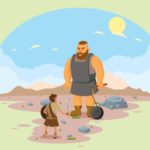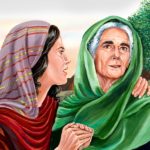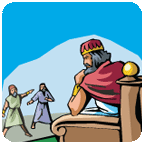#57 Stories from the Tanakh-Unit 2
Lesson #57.1: Jacob and Esau
In this lesson you will learn the story of twin brothers, Esau and Jacob. About the ways in which families can come together to help each other and learn from their mistakes. You’ll even learn the Hebrew word for family!
Lesson #57.2: Joseph and His Brothers

In this lesson you will read the story of Joseph, his brothers, and their father Jacob. You’ll learn about their sibling rivalry, Joseph’s rise to power in Egypt and how he reunited with his brothers and father after years apart. You’ll also learn about the tradition of parents giving their children a blessing, and why Jewish people still practice this tradition today.
In this lesson you will read the story of Ruth and Naomi. You will learn about Jewish traditions of helping those who are in need of food, and think about how modern Jewish people living in urban and suburban areas can help out. You will also have a chance to think about what it means to be a part of a tribe or community and how we can all help each other in times of need.
Lesson #57.4: David and Goliath

In this lesson you will meet David, the great grandson of Ruth and Boaz. You will learn about David’s time as a shepherd and how he defeated the Philistine giant, Goliath, when no one thought he could. Courage and determination are key characteristics that David had in this story. What are some ways you are courageous?
Lesson #57.5: Solomon the Wise King
In this lesson you will read the story of King Solomon, son of King David, who was the wisest king of Israel. You learn about two rabbis, Hillel and Shammai, who are famous for arguing and coming up with decisions about how to practice traditions in Judaism, and how they figured out how to argue. You’ll reflect on how you can use wisdom in your everyday lives.
Lesson #57.6: Jonah and the Great Fish
In this lesson you will be introduced to Jonah and his journey. Learning what it means to help others when you aren’t sure you should or want to. Thinking about the Jewish values Mercy (Rachamim)and Justice (Tzedek). How we can be a part of both personal and communal growth and atonement.




